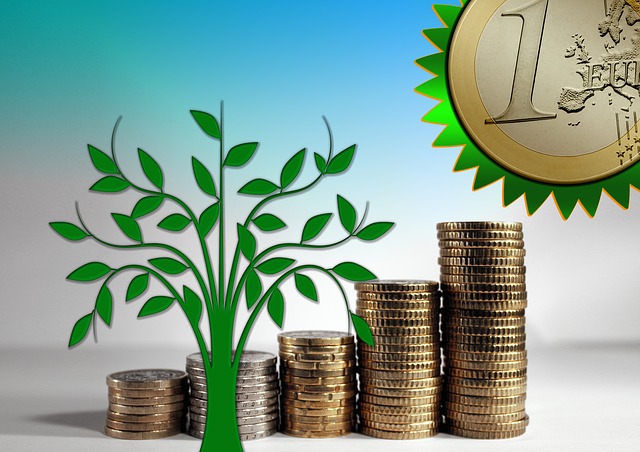
Circular Economy ♻️
Circular Economy ♻️: In this day and age, it is very important to keep items away from going into a landfill. As time goes by, more waste find their way into landfills and space becomes more scarce. Pretty soon, we would not be able to sustain it. That is where the circular economy comes into play.
Using something just once and throwing it afterwards is just a waste. Reading the newspapers and watching the news on the telly, we sometimes see trash in the oceans or in the streets. One of the most heartbreaking news that I have heard of in my life was when a sea turtle was found with a straw stuck up its nose.
>Download Now: Free PDF Business Owners Guide To Commingled Recycling Bin Services
Hearing news like this really makes you wish rubbish like plastic never existed. Or, it made you at least wish that plastic not end on landfills, oceans, and the streets – the end of single-use items.
A circular economy can solve this dilemma with even added benefits! How can it do so? Waster will discuss in the following sections. Read on to learn more.
A bit about Waster
We here at Waster provide you with innovative solutions for you and your business’s waste management and recycling needs. Furthermore, we provide flexible, 30-day contracts instead of the typical lock-in contracts, which proves to be better.
Click on the blue button to learn more.
READ: Washing Containers Before Recycling 💧
What is a circular economy?
The term circular economy refers to a system wherein waste is always given a “new life” – as much as possible, a never-ending cycle of recycling and reusing of products. A circular economy turns the discarded product or waste into resources utilised for the manufacturing of new products, smooth operating of services, and other viable applications.
This is the polar opposite of a linear economy. With a linear economy, items are only used once before being disposed of – single-use items, to be more precise. Consumers and the like will only use the items once before their disposal in everything linear, which straightly contradicts a circular economy.
The goals of a circular economy
As stated above, a circular economy aims to reuse and recycle items as much as possible instead of disposing of them in landfills, or worse, in the oceans or the streets. According to Ideas for Us, the true goal of circular economy is to revert waste items back into two forms: their biological and technical states.
Biological state means activities such as composting food waste. On the other hand, the technological state consists of mainly transforming older products into “brand new” products. Examples of the technological state include turning 3d printing materials into new filaments used again for 3d printing.
Essentially, another goal of circular economy is to limit the use of virgin, natural resources. As the days progress, we slowly deplete our natural resources. One way we can make sure to sustain this living is by implementing a circular economy. Instead of draining the Earth’s natural resources, used products are repurposed, instead.
Examples of practising effective waste management
Businesses, no matter how big or small should make it their goal to implement a circular economy in their waste management. Contrary to popular belief, it is not that hard to implement such practices in businesses’ systems.
The assistance of a waste management company can greatly improve businesses’ waste-dealings. Waster, in particular, puts great importance on recycling. Here, Waster states some examples of how businesses can practise circular economy:
First, businesses have to determine the recyclability of their accumulated waste. are they recyclable or not? The recyclable items should be put in their respective recycling bin. As for the non-recyclable, they are instead thrown in the general waste bin.
With this, we can curb waste from going into landfills. Employees should also seek to limit their own waste production not coming from work operations. For example, instead of throwing their plastic water bottles straight, they can first reuse them to store water and drink.
Another example of lessening waste production would be printing at the back of already printed on paper for rough drafts instead of wasting away precious paper materials. Additionally, if possible, try to do emails instead of utilising paper for important documents. This gives businesses many benefits, as well. They can cut costs spent on providing paper to print on in the office. Also, this helps the environment save up on cutting down trees to produce the paper.

How normal citizens can help
It is not just the big corporations or small businesses that have to pour their efforts into making the world more sustainable. As normal citizens (denizens of Australia, especially), you must also do your part.
An example of how citizens can help with a circular economy is by being aware of what you purchase and use. You, as a citizen, need to be aware of what you buy in the grocery. More often than not, unfortunately, your groceries are plastic bagged.
Instead of immediately disposing of the plastic bags, try to use them for different purposes around the house, first. You can use plastic bags as rubbish can liners to store waste. You can also use them as storage for your food like candies and chips. Make sure you do this to avoid immediately disposing of your plastic.
Collect all of the recyclable plastics you can. Coordinate with your local council and recycling facilities. Most importantly, never throw them in the general waste bin. Make sure to avoid sending them into landfill.
Circular economy and waste management: going hand in hand
Businesses and citizens alike can only achieve a circular economy if they practise proper waste management. Let us avoid a linear economy and reuse everything we can to (a) avoid waste from going into landfills and (b) limit our reliance on natural resources.
For small and medium businesses, contact Waster now for your waste management and recycling needs. Check our waste recycling shop and find the best deals in terms of pricing and services.
Also, please call 1300 WASTER (1300 927 837), or email us at enquiries@waster.com.au if you have any further questions.
Leave a Reply Cancel reply

Product categories
Most Popular Posts
-
Commercial Waste Management Services: Reduce Waste Collection Costs! 🚍
-
Medical Waste Disposal: Everything You Need To Find Out In 2024! 💉
-
Rubbish Removal Sydney 2024: Better Bin Collections For Business ✅
-
Clinical Waste Disposal 2024: What To Know About Business Clinical Waste ⚕️
-
Secure Document Destruction 2024: All About Security Bins Shredding 🔒
-
Free Cardboard Recycling 2024: Can I Get Free Cardboard Collection? 📦
-
Confidential Paper Disposal Bins 2024: What You Need To Know About Shredding! 🔒
-
Recycling Bins Australia 2024: Recycling Can Boost Your Profits! ♲
-
Commercial Wheelie Bin Collection: What Businesses Need To Know In 2024 🗑️
-
Commingled Recycling 2024: Why Commingled Bin Is Key To Recycling 🍾














